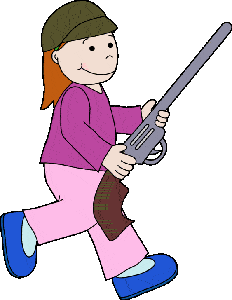1. Just a little bit of theory....
“The only thing that a child knows is how to live his childhood. To know it is up to the adult”.
H. Wallon
In many occasions, I have heard this phrase in the mouth of teachers who attend training workshops, motivated by the legitimate interest of taking advantage of the time they have learning about topics connected to classroom practice. Surely this has to do with the frustration generated from having studied several years of a career, where theory had the maximum curricular weight and practice remained relegated to a minimum expression. This has happened to all of us all the time. We finish our college studies, collect our title and it is in our educational work where we become aware that practice is much richer and more complex that what we learned in books. And even more, that many of the contents we studied do not help us answer the innumerable questions that our practice generates.
The problem of "encyclopaedism" in educational programs is not privative of a single level of education. On the contrary, it is present throughout all our training from School to University. In the field of Education, the have been numerous attempts to palliate the problems of performance through modifications in the General Laws of Education, but in no case has there been a rigorous reframing around the methodology of teaching and the suitable and rational selection of contents that link the student with the reality in which he lives. This is how vicious circles take form, and they are difficult to break because these educators are the ones in charge, in turn, of forming the new generations.
In our case, as teachers, we have the possibility of gaining access to an important supply of courses or training workshops, programmed by various public or private organisms and it is in that space where educators express their yearnings to solve the mentioned deficiencies and show the need to work aspects related to their daily practice. Leaving aside the position of some educators that just hopes to find recipes or prescription procedures to apply in their classroom, what most teachers are not willing to accept, is “more of the same thing” that is to say, theoretical approaches dissociated from the reality they face day to day. Then, which should be the sense and the purpose of theory in our training as teachers? To answer this question I would like to tell an anecdote that can be more illustrative than my own statements. It is a historic episode occurred in 1609. Thomas Hariot and Galileo were working in a meticulous observation of the moon. They set out to make some drawings and images from their respective laboratories, using the same material and similar lenses. Once the work was concluded, it happened that both had different images. Galileo's work illustrated the moon with depressions, mountains and rough surfaces, which went against the scientific conception of the time, when it was thought that the moon was smooth, exactly spherical and without any cavity. When Thomas Hariot saw Galileo's drawings, he modified his adding the details that he had not drawn.
The thing to emphasize is that Galileo took a critical position against the scientific conceptions of the period, and added to his knowledge on drawing, it had allowed him to interpret the shadows projected by the bodies on different surfaces and also to consider elements of perspective and chiaroscuro. Galileo, unlike Hariot, had knowledge that allowed him to discover a truth that was hidden under the moon brightness. This shows us the difference between watching and observing. A glance only requires vision, while observation requires knowledge and critical capacity.
However as our object of study is the child, the fundamental task of every teacher, particularly in early childhood education is to remain alert to his multiple demonstrations, to be able to explore and observe beyond what is evident, since the human beings, like the moon, hide rough surfaces, folds and cavities that are not visible at first sight, and that we are not able to discover with just a simple look. But to be able to do this is not enough to just be willing to do it. As we have just verified in Galileo's anecdote, it is necessary to have some previous knowledge that allows us to turn a glance into an examination and a critical attitude before the absolute truths and certainties that give us security.
